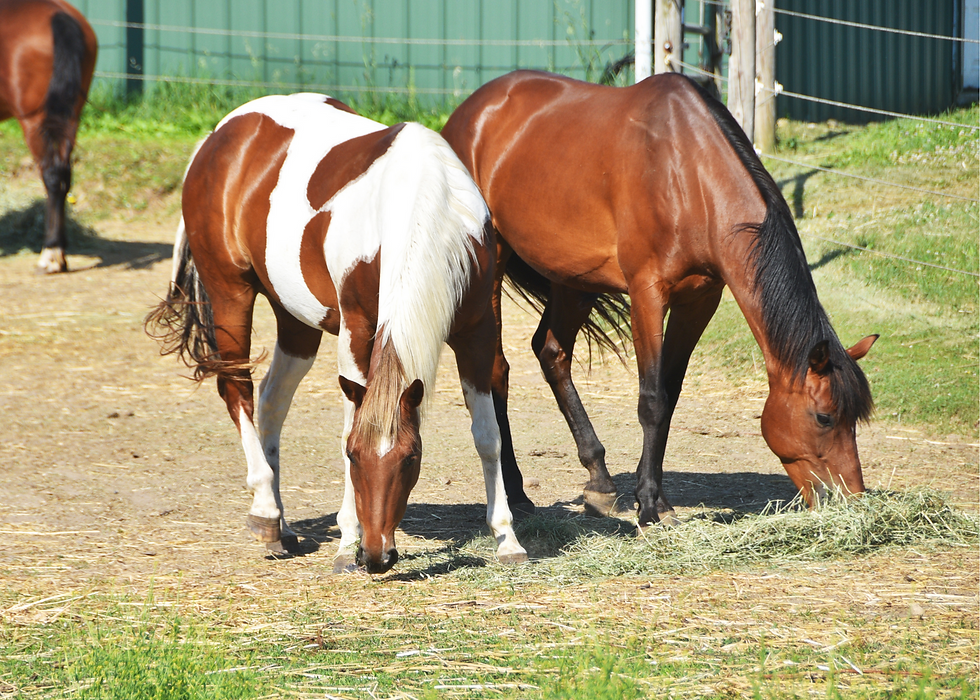For equestrian enthusiasts and horse owners, understanding the right diet for horses is essential. Ryegrass hay for horses is increasingly popular due to its many advantages. These benefits make it a valuable component of an equine’s diet. In the next sections, we will explore its benefits, how to properly feed it, and other related information.

What is Ryegrass Hay?
Ryegrass is a common type of grass known for its high nutrient content and palatability. It is often grown in mild climates and harvested as hay to feed livestock. Farmers and horse owners recognize ryegrass hay for its rich nutritional profile, making it a preferred choice for many.
Benefits of Ryegrass Hay for Horses
There are several key benefits of feeding ryegrass hay to horses:
1. Nutrient-Rich
Ryegrass hay is rich in proteins, vitamins, and minerals that support a horse’s overall health. The nutritional balance found in ryegrass aids in maintaining energy levels and supporting growth.
2. Digestibility
One of the main reasons horse owners prefer ryegrass is its digestibility. Horses can efficiently break down this type of hay, gaining maximum nutritional benefit from it.
3. Palatability
Many horses find ryegrass hay highly palatable. Its appealing taste encourages even the pickiest eaters to consume it and derive nutritional benefits.
How to Feed Ryegrass Hay to Horses?
1. Assessing Horse Needs
Before introducing ryegrass hay to a horse’s diet, it is crucial to evaluate their nutritional needs. Consider factors like age, weight, activity level, and any specific dietary requirements. For tailored advice, visiting a nutritional problem diagnosis page at Rutgers ESC is recommended.
2. Mixing with Other Hay Types
Although ryegrass hay is nutrient-rich, it can be mixed with other types of hay, such as alfalfa or timothy, to offer a balanced diet. This combination ensures horses receive a variety of nutrients.
3. Avoid Overfeeding
As with any food, moderation is key. Overfeeding ryegrass hay can lead to unwanted weight gain and potential health issues. Monitor portions and ensure they are in alignment with the horse’s activity levels.
Potential Concerns with Ryegrass Hay
While ryegrass hay is beneficial, there are potential concerns to be aware of:
1. High Sugars
Some ryegrass varieties can be high in sugars. This can pose a risk for horses that are insulin-resistant or prone to conditions like laminitis.
2. Seasonal Variability
The nutrient content of ryegrass hay can vary with different growing seasons. It is essential to regularly test the hay to ensure consistent quality.
Comparing Ryegrass with Other Types of Hay
Ryegrass stands out among other hay types like timothy and fescue. However, each variety has its unique benefits. Read more about best hay for horses on ProHorseWorld for a broader understanding.
Ryegrass Hay Feeding Tips
When incorporating ryegrass hay into a horse’s diet, it’s crucial to keep a few tips in mind:
1. Storage
Store ryegrass hay in a cool, dry place to prevent mold and spoilage. Proper storage ensures longevity and maintains nutritional value.
2. Gradual Introduction
Introduce ryegrass hay gradually to avoid digestive upset. Give horses time to adjust to the new food source to ensure a smooth transition.
Frequently Asked Questions about Ryegrass Hay
1. Why is ryegrass hay a good choice?
Ryegrass hay is nutrient-rich and palatable, making it an excellent choice for most horses. Its high digestibility sets it apart.
2. Can all horses eat ryegrass hay?
Most horses can consume ryegrass hay, but those with specific conditions, like insulin resistance, should be monitored carefully.
3. How should ryegrass hay be stored?
Store in a dry, cool environment to maintain its nutritional benefits and prevent mold growth.

Conclusion
Incorporating ryegrass hay for horses into their diet provides numerous benefits. With the right approach and understanding, it can be a valuable addition to their nutritional regime. For expanded feeding options, learn more about senior horse feed or textured horse feed on ProHorseWorld.
This article contains affiliate links. We may earn a commission at no extra cost to you.
